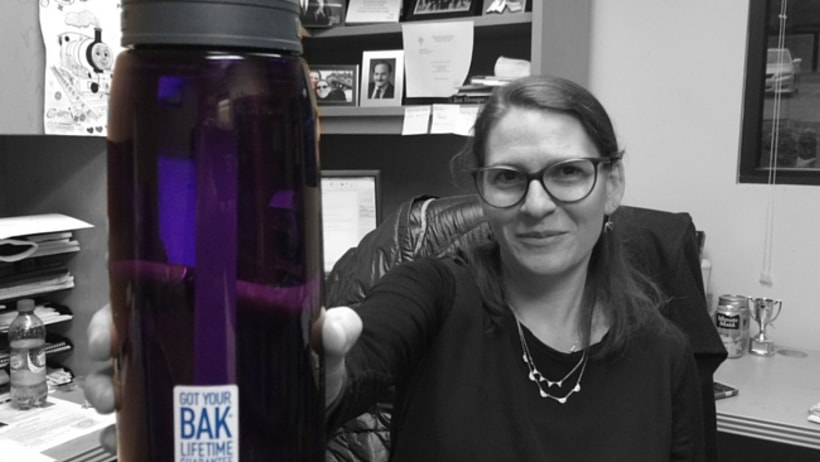
I didn’t quit the colors and flavors cold turkey of course. First it was flavored, carbonated water, then it was diluted flavored water, then just carbonated water. Finally, I could stomach plain old water. My water bottle became like an appendage, and I felt totally lost without it by my side. At a certain point, I started to crave water so much that I was drinking up to four liters a day. That ended soon after I started teaching and had long stretches in the classroom. However, to this day I can’t go more than twenty minutes without craving a delicious gulp of room-temperature water from my little personal reservoir.
Water is a life force and a life-sustaining force. From the moment of our conception, we are immersed, and we use water throughout our lives to clean, purify, hydrate, and refresh. I’ve written before about the use and symbolism of water in the Torah. Parshat Beshalach, which we read this Shabbat, is perhaps more associated with water than any other parshah because it contains the crossing of Yam Suph. After the children of Israel leave Egypt, they journey with Moses through the wilderness until they reach the bank of the Sea of Reeds, stranded between the body of water and their pursuers, the Egyptians. After the Israelites safely cross to dry land, the water, which parted to save their lives, closes in on the Egyptians.
Not long after this water-based miracle, the Israelites complain about their water supply and the taste of it. The Israelites clearly know they need water to survive, and yet they don’t seem to have a grasp on the type or how much they might need. We learn in chapter 15 that the Israelites traveled three days in the wilderness and found no water. Even if my CamelBak wasn’t a constant companion, three days would still be too long to go without water. Our sages delve deeper into this particular span of time and ask, why is three days so notable? They teach that water in the Torah is actually a symbol of Torah itself, and just as the body cannot go three days without water, the soul cannot go three days without some life-sustaining contact with Torah. Interestingly, this is also the reason why we never go more than three days in a row without reading Torah.
What is the life-sustaining force in this metaphor for you? What is the thing you need a regular supply of to refresh and revitalize your spirit? Whether it’s learning, running, cooking, or making music, the Israelites’ journey in the wilderness reminds us to partake every day of the things that nourish our souls as well as our bodies.
-Rabbi Eve Posen
Source: Thirsty For More – Parshat Beshalach 5776 – Rabbi Eve Posen



